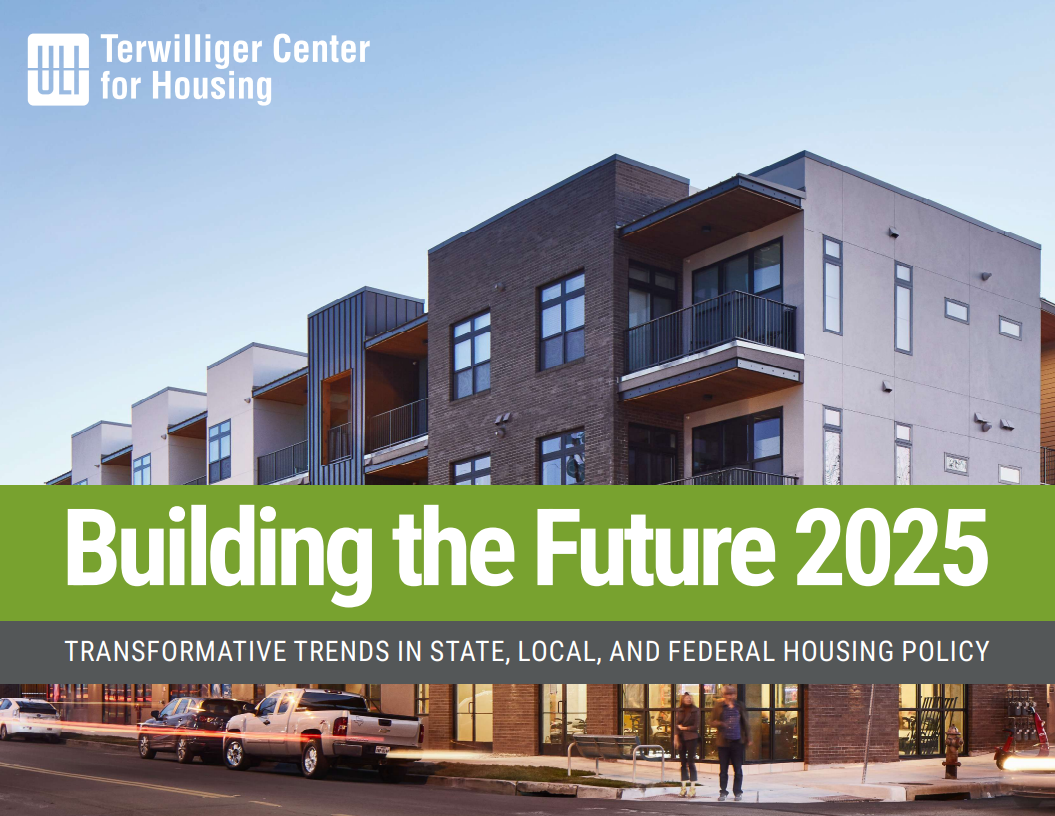Building the Future 2025

Transformative Trends in State, Local, and Federal Housing Policy
Organized into four parts‚ Reform, Connect, Leverage, and Progress‚ the report explores groundbreaking strategies reshaping housing delivery. It features case studies from communities like Seattle, Chattanooga, and Nashville that are streamlining development regulations, reimagining tax incentives, and integrating housing into broader infrastructure plans. The report also spotlights emerging models for modular housing, compact living, and alternative homeownership, as well as innovative financing tools such as tax increment financing and public land equity models. These local innovations are backed by new technologies and technical assistance programs that expand the capacity of under-resourced jurisdictions to meet growing demand.
Building the Future 2025 also provides an update on last year's promising policy reforms and sets a bold vision for 2030. Drawing from insights shared at the 2025 Building the Future Policy Forum and the ongoing work of the National Housing Crisis Task Force, the report offers a roadmap for practitioners, policymakers, and community leaders to act at scale and with urgency.
Report Summary: The Urban Land Institute's Terwilliger Center for Housing is proud to announce the release of Building the Future 2025: Transformative Trends in State, Local, and Federal Housing Policy. This comprehensive report captures a pivotal moment in housing policy across the United States, highlighting the creative and urgent responses of states and municipalities to the nation's deepening housing crisis. As federal leadership shifts, the 2025 report documents how local and state actors are modernizing permitting systems, reforming property tax frameworks, and aligning housing production with transit and infrastructure to drive faster, fairer, and more sustainable housing outcomes.
Organized into four parts‚ Reform, Connect, Leverage, and Progress‚ the report explores groundbreaking strategies reshaping housing delivery. It features case studies from communities like Seattle, Chattanooga, and Nashville that are streamlining development regulations, reimagining tax incentives, and integrating housing into broader infrastructure plans. The report also spotlights emerging models for modular housing, compact living, and alternative homeownership, as well as innovative financing tools such as tax increment financing and public land equity models. These local innovations are backed by new technologies and technical assistance programs that expand the capacity of under-resourced jurisdictions to meet growing demand.
Building the Future 2025 also provides an update on last year's promising policy reforms and sets a bold vision for 2030. Drawing from insights shared at the 2025 Building the Future Policy Forum and the ongoing work of the National Housing Crisis Task Force, the report offers a roadmap for practitioners, policymakers, and community leaders to act at scale and with urgency.


